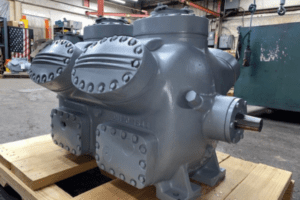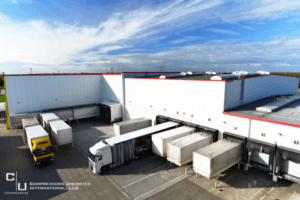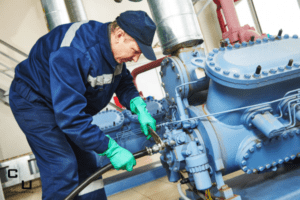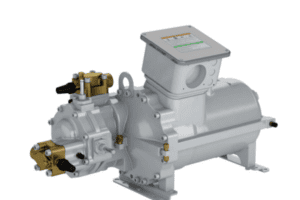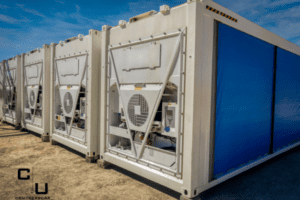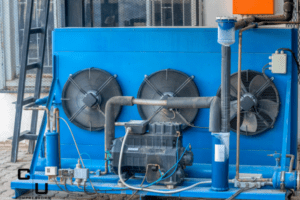

Processing plants vary in size, of course, and the operational concerns they may have are shaped by the kind of products they process regularly. Many plants are moving toward a greater degree of industrial automation, which will enhance workers’ protection from complications like the spread of illness in close quarters.
Of all the innovations that have made a difference to the meat processing industry, however, one stands out.
Today’s meat processing, packing, and transportation all rely on commercial compressors. Without reliable and powerful refrigeration compressors, meat could not travel as far to supermarkets and thousands of pounds of meat would be at risk of spoilage every single day. Compressors make modern dietary variety possible!
Compressors Add Value at Every Link in the Processing Chain
At room temperature, meat spoils within about two hours. Meat can spoil even faster in warmer temperatures, especially with high humidity. Most commercial beef reaches the consumer ready to use or freeze within two days. To ensure freshness, the work of commercial compressors is involved in every step of meat processing.
When an animal is slaughtered for food, chilling must be carried out immediately. The meat remains in a chilled state that must be sustained at or below 32 degrees Fahrenheit. Temperature fluctuations can make meat unsafe to process by enabling the growth of bacteria, even when the meat itself isn’t spoiled.
Bacterial colonization is possible around 34 degrees Fahrenheit, so commercial compressors uphold the appropriate temperature until it is time for the meat to be fully processed. If any part of the refrigeration system fails, it would only take a few minutes for stored meat products to reach an unsafe temperature.
Compressors Keep Meat Safe Until It’s Ready for Packaging
After this initial phase, meat processing can involve several steps. First, the meat must be cut and inspected. Although industrial meat processing plants have made strides in industrial automation, cutting for many meat products must still be done by hand using the skills of expert butchers.
Cuts of meat have exact definitions, and today’s AI-driven industrial robots do not always provide the precision needed. This is not because they cannot be programmed to distinguish cuts of meat, but because of the size, weight, and texture of raw meat and nuances in appearance that challenge current machine vision technology.
That being the case, there may be dozens or even hundreds of human employees who are all involved in meat preparation. They must be equipped for safety and sanitation, defending the products against any contaminants while ensuring the required temperatures at all times. Depending on the number of people and the layout of a facility, lots of additional heat can be generated by equipment or simply by human presence.
It’s up to the commercial compressors to offset all of it!
Refrigeration Solutions Remain Vital After Packaging
Meat inspection is not just a single step, but can occur throughout processing. In addition to dedicated meat inspectors, anyone who performs a task in the process is empowered to draw attention to compromised products. When the time comes for packaging, the hardest part is done!
Meat packaging in large facilities is done almost entirely by machine. Sophisticated sensors enable machines to detect the weight, temperature, and dimensions of the products at all times. This facilitates the vacuum sealing process that keeps excess air – as well as bacteria – out of the packaging of an otherwise finished product.
Although all meat products must be protected from air exposure, the precise packaging devices used vary based on the type of meat. Beef and pork use standard vacuum sealing processes that have been well known for many years. On the other hand, seafood is often flash frozen to maintain its freshness before use.
There are unique packaging designs especially for freshwater fish, saltwater fish, crustaceans, and mollusks.
Freezing seafood for distribution requires intensive refrigeration. Centrifugal compressors, the largest category available, may be used for especially large seafood canneries. Carbon dioxide is often introduced to slow meat aging. This technique is also used for poultry, which can foster dangerous bacteria at even lower temperatures.
Your Next Delicious Meal: Made Possible by Commercial Refrigeration Compressors
Throughout meat transportation, trucks must maintain low temperatures, too. Drivers are often skilled with refrigeration technology and know quite a bit about the load they carry. Logistics depots on the driver’s route may stock remanufactured commercial compressors so “reefer” trucks don’t go out of service unexpectedly. From the first moment of a product’s journey to the last mile, compressors are the key.


